A mixed bag

This appears to me to be an attempt by Ferguson to provide a sort of sequel to Guns, Germs and Steel. I say that because both books begin the same way - the attempt to answer a question about Europe's predominance over the last few hundred years and because Ferguson makes multiple reference's to Diamond. I am guessing Ferguson was not entirely satisfied with Diamond's explanation and sought to get more detailed about the rise of Europe.
If you could get past the horribly self-congratulatory preface - if your edition is unfortunate to have it - I think he does a somewhat reasonable job of attempting this alternative explanation. (But about that preface: it may be the most self-congratulatory preface I have ever read. It is horrible. Please stick with the book if it sickens you. Or skip it altogether.)
The first few chapters are quite compelling and generally well done. Where Ferguson has problems is when he gets to "Medicine", "Consumption" and "Work Ethic." It seems that Ferguson is struggling to explain exactly how these things affected the world - and led to European dominance - in part because he wants to tell other stories: in the case of "Medicine" it is the incredibly interesting story of how the Germans practiced ethnic cleansing in Africa well before the Nazis took over; in the case of "Work Ethic" its a far less effective lecture as to how our lack of faith is somehow destroying us morally (definitely the lowlight of the book). These may be interesting issues - I am going to hopefully read more into the German colonization of Africa - but they are really not relevant in any way I can see. And all three of these chapters are afflicted by this problem - they are entirely too tangential.
Fortunately the conclusion is rather fascinating and, if you can handle Ferguson's very, very pro-Western stance, quite illuminating, to the extent that they mostly make up for the rather clumsy and confused second half of the book. Ferguson's suggestion that we should reject the cyclical view of history in favour of one based on the scientific understanding of complexity is particularly well taken and reason alone to read the book.
On the whole I'd say it's worth reading, though it has enough problems that anyone who finds Ferguson's public persona annoying will probably not be able to enjoy it. Fortunately I try to avoid everything but his books, so I didn't have that problem. It's a flawed but interesting account of recent world history.
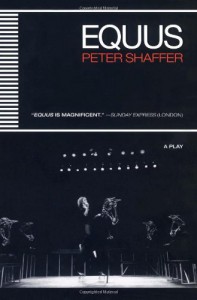
I first saw this in the movie version, which featured Richard Burton chewing through the role of the psychiatrist, about 10 or 12 years ago.
I must say that after reading a version wherein the original staging is described, I can't help but feel the filmmakers made a major mistake trying to make the play "realistic" in its setting. I think the artificial staging quite helps the point, but anyway...
Equus is difficult but well worth reading if you want think about things most people don't want to think about - i.e. is there some social or societal root cause in the aberrant behaviour that seems to be more commonplace than ever.
I'm not sure I agree with Shaffer's conclusion as to the answer, but he's certainly provocative with his answer and with the entire plot. I'm sure this was even more audacious in early '70s Britain than it seemed to em in early 21st century Quebec or now, in slightly later 21st century Toronto. And really, what's the point of drama if it doesn't make us ask uncomfortable questions of ourselves and society?
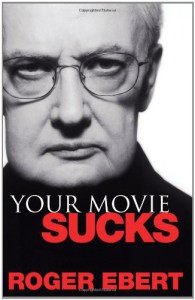
I used to read Ebert a lot while he was still alive. It's not that I necessarily agreed with him all the time - I find that he both overrates some well-made children's movies, and falls into that typical critic's cliche of thinking the values of his generation are universal (more on that in a second) - but rather that I appreciated his sense of film history. To anyone looking to really get into 20th century cinema, Ebert's list of 'The Great Movies' would be a fine entry point.
That being said, we should recognize that, though Ebert is probably the most famous movie critic of all time, he's hardly considered a great one by his contemporaries (despite the Pulitzer). For example, I have a compendium of American film criticism: Ebert gets a couple pages out of 400 or so. I never really thought about reading the first version of this book (I Hate...Hated This Movie) however I found this one for a dollar, so i read it.
On the whole, it is very entertaining. If you enjoy Ebert's reviews, then you will enjoy these. I find Ebert's criticisms of the way films fail to be very instructive when thinking about how I express myself about movies, and in thinking about movies in general.
But, as usual, Ebert has some real surprise reviews. Two films in particular he hated which I really liked. (One of which would be on my short list for best movies of the 2000s.) Sometimes, Ebert seems morally opposed to a film, rather than critical of the film as a film. And those are the times I cannot agree with him, nor even take him seriously. Sometimes he sounds like a cantankerous old mad, railing against the moral failings of kids today. And unfortunately it's those reviews that make this book a bit of a disappointment.
The New Vonnegut is pretty accurate
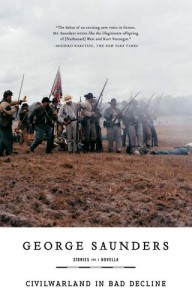
I had no idea what this was. This book was bought for me as a gift because of the civil war painting on the cover and the gifter and I didn't bother to read anything on the back. Anyway...
The comparisons to Vonnegut are pretty accurate, only Saunders is darker and more offensive. As someone who used to worship Vonnegut a little too much, I think they are also unfair. Saunders is his own writer and though Vonnegut is the easiest comparison, I think it's safe to say that he is original enough - and definitely funny enough - that we shouldn't worry if he's carrying on in Vonnegut's shadow.
Some of these stories are just absurd and hilarious, but some of them are so poignant behind their absurdity that I almost felt bad for laughing.
Probably the best thing I can say for the collection is that it makes me want to read more of his work.
Well worth reading

This is a history of human beings' invented worlds, not specifically from fiction but rather (mostly) worlds which human beings invented to explain the unknown parts of the earth, which exploration and science hadn't yet revealed.
The chapters cover worlds such as Atlantis, Shangri La, and numerous other fabled lands. Each chapter is further supported by excerpts from many of the referenced texts.
Eco isn't always obvious in his purpose - though if you have read Foucault's Pendulum, for example, you already know how he feels - at least in the first chapters but his intent is, rightly, to point out the silliness to which human imagination gets when it is not provided with answers that it accepts as reasonable.
Eco is relatively objective for such an easily mockable subject, but he occasionally injects humour and insights into the human condition, which make the book even more compelling.
The one problem with the book is probably the fault of the printer and not Eco himself: the translation contains a couple of errors - don't know whether they are the translator's or the printer's - and the addendum to each chapter isn't always well organized: The texts are usually listed as they are mentioned but not always. Some references in the text are not clearly found in the addenda and a couple times I don't think I ever found them. But, again, I think this was a printing error for the hardcover English edition.
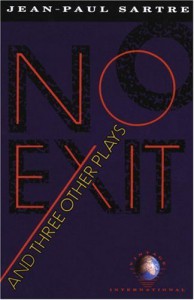
No Exit is iconic and important, even if it is a little obvious in retrospect and even if Sartre's ideas have become a little cliche. (Well, that's to his credit, isn't it?)
I haven't read Electra (the Sophocles version) in forever but I feel like The Flies is an interesting reworking of the myth / story, and it did not go where I thought it would.
I sympathize with Jessica, at least until she falls in love with Hoederer, so I have a harder time accepting the moral of Dirty Hands, even though I sort of agree with it (I stress sort of). This play is great evidence why Sartre, for all his talk, was a closet essentialist, And though this is far more obvious in Being and Nothingness than it is here, the germs of his intellectualizing his own ideas into meaninglessness are here, to my eyes.
The Respectful Prostitute feels like it is designed to provoke outrage and is, in some small ways, reminiscent of Dogville and other European "critiques" of US culture that appear to be written by people who have never lived in the United States. Parts of it sort of ring true but much of it feels contrived. This feels even more contrived than the kind of story Hollywood have made into a message movie.
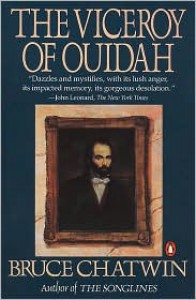
Is this mythology as history? Or maybe narrative journalism as history? I saw Cobra Verde ages ago and I didn't know this was the source material. If memory serves, it was very liberally adapted. This is an absolutely crazy story, and at this remove I'm not sure if it matters what is true and what isn't. It's a fascinating and bizarre situation during a bizarre time and this kind of approach, well over a century removed, makes the whole story more alive, even if it maybe isn't accurate.
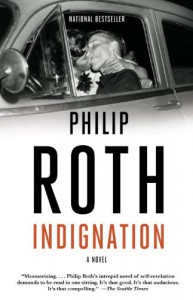
This has some great moments but on the whole it feels a little forced, for lack of a better word. I feel like the whole "dead narrator" thing is unnecessary, though I'm not sure how I'd fix it. When I was on the bus that I read this on, I was having trouble putting my feelings into words, in part because of jet lag. I guess what bugs me is that I do not believe in an afterlife and, though I find Roth's idea of an afterlife in this book a little thought-provoking. but I don't find it complimentary to what is an otherwise really strong narrative about coming of age. Perhaps that's what my problem is.
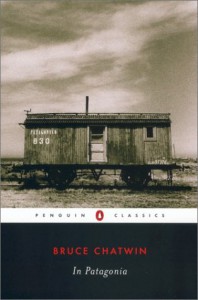
Part travelog, part oral history, part amateur archaeological text, part memoir.
Totally unique and a far cry from Theroux's more traditional travel writing. Theroux takes the train, Chatwin hitchhikes - and perhaps that is why their experiences are so different. Chatwin is also much more concerned with local memory / mythology as history rather than his own personal observations of cultures and peoples. It's a completely different approach but it is just as interesting.
Worth sticking with
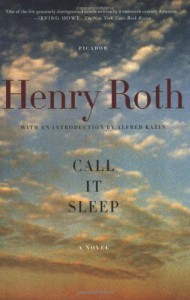
I have finally finished this book, but it isn't just the books fault - at least some of the responsibility lies with our new puppy who, especially in November, did not leave me with enough energy read. Anyway, I'm finally done and I'm glad I read it.
I must say that at first I struggled to care. Roth does an excellent job of creating one little boy's world in early 1900s NYC but I found his parents unlikable and, as someone who had a rather nice childhood, I had trouble caring about his miserable but not truly horrible childhood. (I say 'not truly horrible' only in relation to the earliest parts of the book.)
But the older David gets, the easier it is to care about him. And the final section of the book comes alive with Roth's excellent depiction of the various New York dialects.
It is that final section where it actually feels like something may happen - as something indeed does - and there is a palpable sense of tension when David's actions get him into trouble.
I worried that the climax - otherwise extremely well-rendered even if it feels outside of the scope of the novel - would be a little too cute, but the brief and affecting denouement solves whatever problem I would have had.
Not one of the great novels of the twentieth century, as so many have claimed, but still a good book and worth your time.
He's right (most of the time) but this is a mess
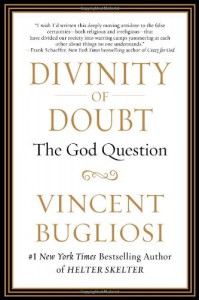
It's hard to know what to say about this book: I agree - most of the time - with Bugliosi's position on this subject. But, as with his Prosecution of George W. Bush for Murder, this comes off as an unorganized rant that is made all the worse because he constantly claims other people - in this book, philosophers no less - are incapable of reasoning like he is, and then he makes ridiculous, irrational arguments, sometimes of the exact kind he is criticizing. And this experience is maddening for an agnostic like me so I can't understand what it would be like for a died-in-the-wool Christian or an atheist fundamentalist, the people he is supposedly trying to convert. The more I read of Bugliosi, the more I find he should stick to true crime. This is certainly a vast improvement on the Bush mess, but it's still far from an ideal argument for the agnostic point of view, and that makes me a sad panda.
Probably the biggest problem is the way the book is organized: into 19 arbitrarily organized chapters and two "bookends." In chapter 3 - I think - Bugliosi proves, in one of the many ways possible, that the Christian God does not exist. Great. I agree. But then he spends the vast majority of the rest of the book harping on the problems with Christian belief! I mean, why??? He already demonstrated the Christian God does not exist. Either leave out the rest, or move everything around: the 'Christian God does not exist' should be at the end, if he is going to include all the other, unnecessary stuff about absurdities of the Bible and the rites of the religion.
And, in addition to the organization problems, there are three chapters that just don't cut the mustard.
First, his chapter on atheist fundamentalism just reeks of personal attacks. I am no fan of Dawkins or of Hitchens, but Bugliosi seems to have misinterpreted the purposes of their books. (Maybe he hasn't, I have read them.) But that's not really my problem: Bugliosi spends a chapter attacking them and Harris, but mentions Bertrand Russell once. If Bugliosi is going to take on an atheist, maybe he should take on Russell instead, after all Russell has thoroughly discussed the philosophical arguments for the existence of god to an extent than dwarfs the combined discussion by Dawkins, Harris and Hitchens. (In fact, it is my understanding that none of these three "fundamentalists" even discuss those arguments.) So that's a pretty major cherry picking issue.
Second, his chapter on evolution is lazy and frankly pathetic. Bugliosi does this "I'm just a humble trial lawyer" shtick which is infuriating because we know he is a smart man. He claims to have read far more on evolution than I, but then fails to understand it at even the most basic level. He seems to not want to understand it though, as he questions Darwin on evolution, apparently willing to ignore 150 years of evolutionary biology he supposedly read about before he wrote the book. Whatever questions he thinks he has - about the "gaps" in the record, for example - would no doubt be better answered by a modern text - such as Darwin's Ghost - and not by Darwin himself. Here are two really terrible examples of Bugliosi's inductive reasoning run amok: First, Bugliosi cherry picks moments from his life where he remembers people having incredible memories and claims that evolution has no explanation for this - that there must be something more. He of course fails to mention the millions of times in each of our lives where we can't find what we've supposedly lost or remember what we were going to say. (He actually does sort of address this issue, in a completely different section of the book, discussing a different issue, as some kind of attempt at finding god, which makes the cherry picking all the more absurd.) There is no argument here: sometimes people have amazing recall of certain things and sometimes I can't find my glasses that I took off my face 25 seconds ago. Second, Bugliosi claims that human beings have not seen the evolution in pets that we have seen in ourselves during recorded history - that recorded history demonstrates this. But this is beyond ridiculous: humans now live longer lives and dominate the globe like we never have before, because we have focused ourselves on doing so. Is this a natural evolution? Hardly. We can do things that pets cannot in this regard. So I am bigger and healthier than my ancestors but am I fundamentally a different species??? Further, Bugliosi ignores selective breeding, which of course demonstrates how evolution sometimes stops working when human beings involve themselves in it: in many ways its the opposite of what would be caused by nature, because how would purebreds survive without people and modern veterinary care?
The third chapter that is hugely problematic is his chapter on the first cause argument. Russell has demonstrated the problems with this argument, and Bugliosi does not take him on. Instead, Bugliosi seems to be saying that it is not fair to claim we do not know what caused the universe unless we call this unknown thing god. At least I think that is what he arguing, as he is very confused about it, attacking atheists for their arguments about the logical problems with the first cause while remaining seemingly completely, willfully ignorant of the science on the matter. On one page Bugliosi literally attacks the scientific perspective for not being sure about what caused the universe and on the next page basically names this unsureness, which he is suddenly defending, "god." (If that's what god is, we have problems: most people are not deists.)
The bookends are also highly problematic - based completely on inductive reasoning - but I won't bother with them, as they clearly are meant more as extended footnotes.
Fortunately for us readers, Bugliosi's concluding chapter is pretty much faultless and I found that after reading it, I disliked the rest of the book a lot less than I did while reading the above three chapters.
So to sum up I would say that this isn't about convince anyone who isn't already an agnostic to be an agnostic, which is unfortunate, but that it does contain excellent discussions of the inherent absurdities of religion, and an excellent argument in favour of morality outside of religion. So those things, I think, outweigh the many, many problems in the early going.
Well done if nothing more
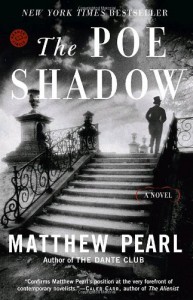
I appreciate the effort that went into this to make it historically accurate. And I appreciate that, instead of writing a work of scholarship, he tried to make it exciting by writing a novel. But I have never felt the kind of enthusiasm for solving a "mystery" as unmysetrious as the death of Poe as Quentin Clark. Even when I was 18 and obsessed with Kubrick, and he died in circumstances that were not immediately conveyed to the public, I accepted it. And for whatever reason, Pearl never sold me on Clark's interest. i never quite could buy it. Everything else around it works, but I just don't know why Clark cares so much about the fact that Poe just died in Baltimore instead of where he was supposed to be. So what?
Very disappointing
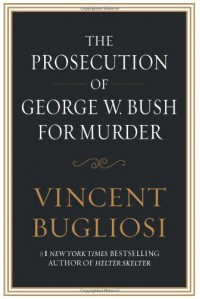
I have "read" one book by Vincent Bugliosi before (I say "read" because it was an audio book) and in that book Bugliosi impressed me with his rather ruthless rigour of thought about an issue that was clouded by too many books and opinions.
But this book is a pale imitation. Instead of a rigorous, thorough prosecution of Bush - and there is that in part - we get character assassination, out of control hyperbole and personal attacks against the press and the reader! It is a very angry polemic. Bugliosi spends tons of time just ripping on Bush as a person. I agree with him about Bush, but that's not the point. The point is that character assassination shouldn't be part of proving Bush did something deplorable. Nor should Bugliosi's endless hyperbole, nor should insulting members of the media, nor should claiming practically all Americans - especially conservatives - are idiots.
Bugliosi is not for a second concerned about why the media and the American public went along with this farce - which to me is the more interesting question - he just thinks they are all idiots for it. I do think Bush should be prosecuted for war crimes at the very least, but I am under no illusions that he ever will be. Bugliosi does lay out a good case for an American prosecutor to go after him, but it is buried in the mess of anger and ranting. This kind of thing might work well in a trial - I don't know, I have never been to a trial - but it doesn't work in book form.
For me, the question for history is how the worst president in US history got re-elected. For Bugliosi, the issue is that some great injustice has been done and we are all idiots for letting it happen. Bugliosi appears to view the world in discredited black and white moral terms that I thought he would be too smart to fall into. He doesn't understand that by claiming that practically everyone else is insane makes the concept of sanity meaningless.
All of this might be somewhat bearable - given that he does lay out many, many compelling reasons to put Bush on trial - if it weren't for the last chapter, a bizarre, unnecessary and frankly embarrassing rant on how the US has declined immeasurably. Now, I would agree that the US is no longer the power it was say 20 years ago, but Bugliosi does so much more than this: the era of his childhood and young adulthood was roses and now everything has gone to shit. When he was young, men were men and leaders were leaders and there were no morally dubious decisions from the US government. This chapter is revisionist nostalgia at its worst and it would have no place in any trial of Bush and therefore should have been excised.
The last chapter takes what is a frustrating but at least fairly accurate rant and turns it into a sermon, and not a very good one. Preaching to the converted doesn't work: if Bugliosi really wanted Bush to go to trial for his actions as President, he should have written something to try and convert those who don't already think Bush is the devil. But this book will convince no one: Bugliosi comes across as so angry that he is far too easy to dismiss, no matter how right he might be about Bush's conduct.
Not worth your time.
Incidentally, to give you an idea of how much of rant this is: the book has well over 100 pages of notes - I think - and rather than just discussing sources the notes are used for additional rants about Bush, Cheney, Rice, the media and the American public.
I wrote this
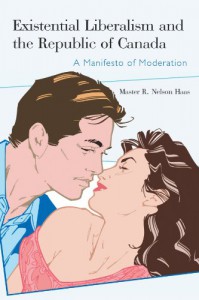
So I saw that I am getting quite a following here on booklikes and I figured I'd mention that I wrote a book, this book. I hope to have a second one published by sometime in September or perhaps even earlier, on a completely separate topic: the Beatles.
If you like the books I review normally, maybe you'll like this one to.
So ends my shameless plug.
Don't avoid this because you don't want to read about porn
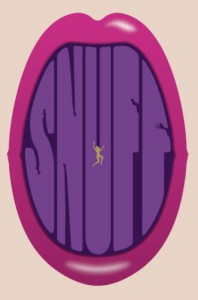
I went through a few stages with this novel. At first I was thinking, 'I think he wrote this just to piss people off, but it's hilarious so I don't care.' Then I was thinking, 'maybe this is his attempt at creating a gross version of As I Lay Dying.' And some other thoughts passed through my head.
But Palahniuk is so good at pushing the action forward to its surprise conclusion - which, knowing Palahniuk, we know is coming - that I sort of stopped caring what this was. It's funny, it's a page-turner, and it's just edgy enough to feel somewhat risque.
I think that he hasn't defined three of his five protagonists well enough this time out - without the chapter headings, we might take a few lines to figure out who is narrating - but that is relatively minor issue given how entertaining the read is; I was desperate to find out what happens.
One-sided but worth reading
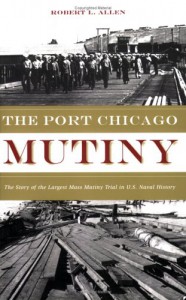
I was actually completely unaware of the occurrence of the Port Chicago explosion or subsequent "mutiny", so this book was quite eye-opening.
I don't want to open this can of worms, but I think I have too: unfortunately this account is too focused on race and the individual, subjective experiences of the African American seamen who participated in the work stoppage. I say this because Allen has assembled a lot of damning information about Navy policies and actions that caused this explosion - and the successful blaming of the explosion on black sailors - but by focusing so much on the memories of a few participants and particularly Small's, and by focusing almost entirely on the issue of race, Allen has opened him up to charges of bias, no matter how unfounded. I am a big believer that the purpose of a book like this is to change the minds of people who might still believe the Navy's prosecution of the 50 "mutineers" was justified, but the way it is written that will never happen.
For me, the gold standard in exposing Naval institutional incompetence is All the Drowned Sailors, this book is nowhere near as rigorous, or thorough, or frankly compelling. I recognize what Allen was trying to do, but I think he would have been more successful in condemning the ass-covering actions of the Navy if he had approached the event as a story of institutional incompetence at multiple levels, rather than just a story of institutionalized racism.
I don't mean to say this book isn't any good: it is informative, thought-provoking, outrage-provoking and as complete coverage of this disaster as is out there, but I do think it could have been elevated to the status of classic had the race aspect merely been a part of a general indictment of human error in institutions rather than the raison d'etre of the whole book. And I think that allowing the Navy to indict itself via history would have probably been more effective than relying almost entirely on the memories of the survivors. (One of Allen's major problems is his reverential attitude towards the survivors he met, and his entirely sceptical attitude towards the official testimony of white officers; he should have reservations about all witness testimony in general.)
Still, if you have any interest in the history of disasters, the military or the navy, obvious miscarriages of justice, or the treatment of African Americans in the '40s, you should read this book. It's not perfect, but I know it's the best treatment of this terrible even out there.





 2
2

 1
1